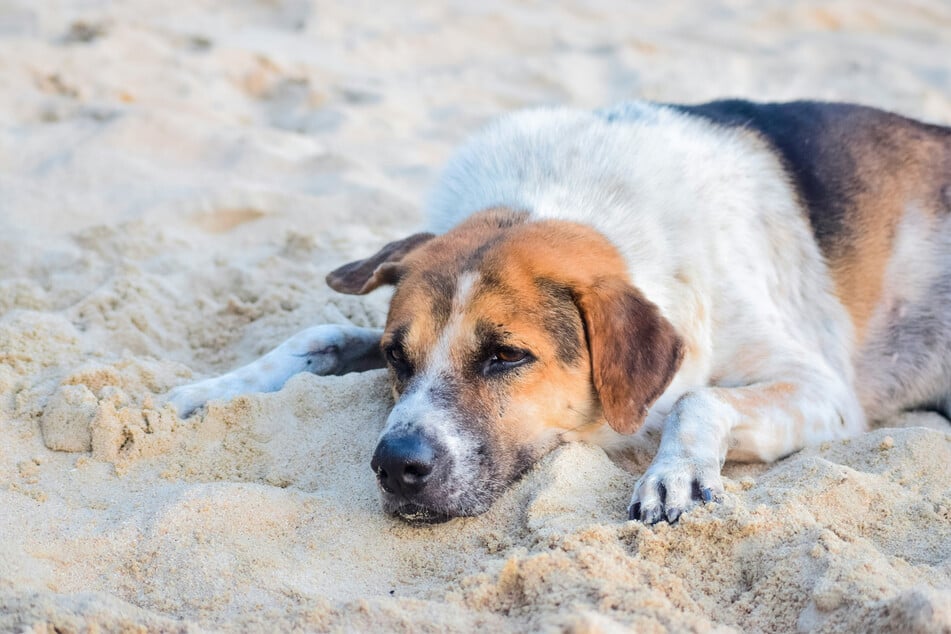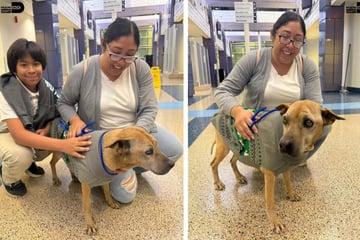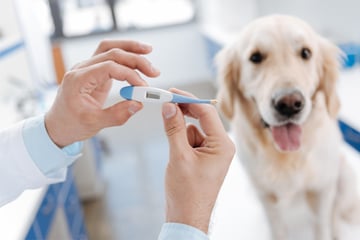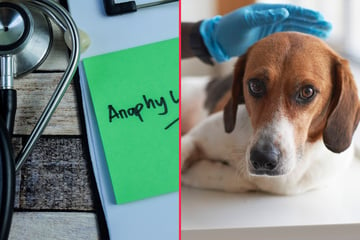Dog hypothyroidism: Symptoms and treatment
Hypothyroidism in dogs is an underappreciated and underdiscussed issue that attacks far more of our canine companions than is commonly known. So what is dog hypothyroidism, how do you recognize it, and what can you do about it?

Hyperthyroidism isn't a condition that only affects humans – our best animal friends can suffer from it too, and it's important to know how to respond to a condition that is more common than you'd think.
While hypothyroidism is a disorder that can seriously hurt your dog and can be highly distressing, if caught early, it's very treatable.
To get you started on this topic, TAG24's dog guide takes a look at hypothyroidism in dogs, what symptoms should you look out for, and how it's treated.
Here's what you need to know.
Important: Please keep in mind that we're not veterinarians. This article is simply a brief explainer on what you can expect from a dog with hypothyroidism. If you suspect your dog has this affliction, your first and only port of call should be a trained veterinarian.
What is hypothyroidism in a dog?
Hypothyroidism in dogs is a hormone imbalance caused by functional problems within the thyroid. These functional issues can be caused by inflammation or shrinkage of the thyroid caused by various diseases and health afflictions, but more commonly from genetic issues that lead to difficulties producing enough thyroid hormones than is needed.
When your dog has hypothyroidism, its thyroid is not functioning correctly and is not producing enough of the hormones your dog needs. This can have a developmental impact on your dog, as lowered hormones will affect its brain as well as its body. That being said, the condition is more common in middle-aged and older dogs, rather than in developing puppies.
Getting down to the basics, the thyroid is a gland located in your dog's neck, near the larynx. It is made up of two separate lobes and produces hormones which impact upon your darling doggo's metabolism, and various other bodily functions.
As a result of the critical role that the thyroid plays in a dog's body, hypothyroidism is a quite serious condition that can have some pretty awful symptoms. Luckily, there are some very effective treatments out there!
Don't mistake it for hyperthyroidism: Hyperthyroidism is the opposite of hypothyroidism – it's a defect in the thyroid that leads to an overproduction of those same hormones.

Dog hypothyroidism symptoms checklist: how do I know if my dog has hypothyroidism?
Seeing as a dog's thyroid produces vital hormones that have an effect on its entire body, hypothyroidism has an enormous impact on your dog's health. As a result, it is extremely important that you know how to recognize the symptoms, so that immediate action can be taken to lessen the hurt caused by such a health condition.
All dog owners should know how to recognize the signs of hypothyroidism. As a result, we have constructed this dog hypothyroidism symptoms checklist:
- Serious hair loss, patchy coat
- Thinning hair
- Oily coat, greasy appearance and feel
- Regular infections on the skin
- Regular ear infections
- Darkening skin
- Weight gain
- Listlessness, lethargy, and a lack of any energy
- Symptoms only recognizable by your veterinarian:
- Anemia
- High cholesterol
If your dog has a few of these symptoms, it's time to go to the vet and get it checked out for hypothyroidism. Try not to worry, if you catch it early it shouldn't be too bad.
How to help my dog with hypothyroidism: Treatment

The only way to treat a dog with hypothyroidism is through the use of medication to either increase the quantity of thyroid hormones surging through the dog's body, or improve the functioning of the thyroid itself. These drugs should, understandably, only be applied once prescribed by a veterinarian, and in the correct, recognized dosage.
There are no home remedies for hypothyroidism and, quite simply, there shouldn't be any home remedies. Dogs who suffer from this affliction can only be helped via medical intervention, and the use of random "solutions" found on the internet can be both irresponsible and dangerous.
Remember that you're dealing with an ongoing illness that needs to be monitored and managed. In general, you will use levothyroxine sodium tablets administered every 12–24 hours (depending on the prescription). This is a form of thyroid hormone replacement, and your dog will likely need it for the rest of its life.
The idea is to mitigate the impact of the thyroid issue by administering pills that will replace the hormone and keep your dog's body working smoothly. It's a straight-forward idea and, sadly, your only real option. Having began treatment, you should notice an improvement within days.
Through the use of medication and with regular check-ups at your veterinarian, dog hypothyroidism is perfectly treatable. Simply look out for the symptoms and take immediate action, and your furry friends will be just fine!
Cover photo: Unsplash/Jorge Zapata





